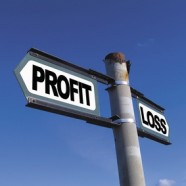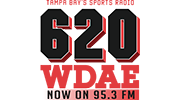Handling Loss
It’s the darker side of sports betting: the part no one in the industry ever wants to discuss beyond a short discussion that’s always better served for another day. Handicappers, bookmakers, pick sellers, weekend warriors; no one likes the serious dialogue centered around losing bets and the strategies we employ to get through the rough patches. Every conversation I’ve had in this business always starts with delusions of grandeur and questions like “how much money can I win quickly or can I turn a 500 buck bankroll into 5k inside a month” rather than the most important question: how much money you can afford to lose while trying to win? The reality of betting sports is that 98% of the population will lose long term and even the best gamblers in the world are forced to cope with slumps throughout the journey to the top. Remember this: a bettor who says he never has a losing day, losing week, or losing month can’t be trusted.
We’re all familiar with the golden ratio of 52.4% as the break even mark in sports assuming the traditional -110 lines with a flat bet on every (which you should never do but that’s a discussion for another day). Even if you’re among the top 1% and win 55% of the time, that still leaves 45 out of 100 bets that don’t end with the desired outcome. The goal is as much about maximizing earning potential when you’re running well as it is about minimizing losses when cold spells hit. We’ve all been there before, mired in a funk we think will never end while grasping for straws unsure of our own handicapping. Recognizing the losing skid is imperative for self conservation; knowing when to scale back volumes waiting for optimal spots before firing keeps you in the game longer. Self awareness isn’t a trait gamblers are born with but instead learn over time after going through the grind.
When you find yourself struggling, don’t look to make excuses or point the finger at others. Take responsibility for your own wagers understanding the everyone has been here before and the better gambler you are, the more bad beats you’ll need to endure because you’re in more games during crunch time. I see a lack of accountability all to often from those trying to learn the hobby…the players, twitter, referees, etc gets blamed for a loss rather than the individual looking in the mirror. All losses aren’t created equally but the bet that doesn’t win isn’t the problem (there will always be another bet); failure to learn from your own mistakes is the bigger travesty if you always make excuses for failed wagers.
Unless you’re blessed with an unlimited bankroll, learn the Kelly Criterion before you ever place a bet. For me personally I don’t ascribe to living exactly by Kelly principles instead use it more as a guide than anything else. Typically I scale back my volume considerably when things are running poorly knowing I feel much more comfortable isolating games with an edge rather than peppering the board. I’d much prefer going to the window with my best bet each night over spreading funds across 10-12 games hoping to land a gem. Does this mean if you only bet your best game it will always win? Absolutely not and you’ll inevitably experience gamblers remorse when games you move on lose if leans come through with flying colors. Trust me when I say getting lean during tough times is a strategy that provides valuable lessons yielding long term gain not only in business but sports betting as well.
If this article leaves you with one action point it’s to track all of your bets. Whether it’s a complex spreadsheet, sports betting app, or a simple notebook knowing exactly where your wins/losses and finances are at all times will make you a better bettor. Sometimes the hardest thing to do in this business is look yourself in the mirror and alter a thought process. Nothing remains static in sports betting, the way you handle cold spells and losing streaks shouldn’t either.












